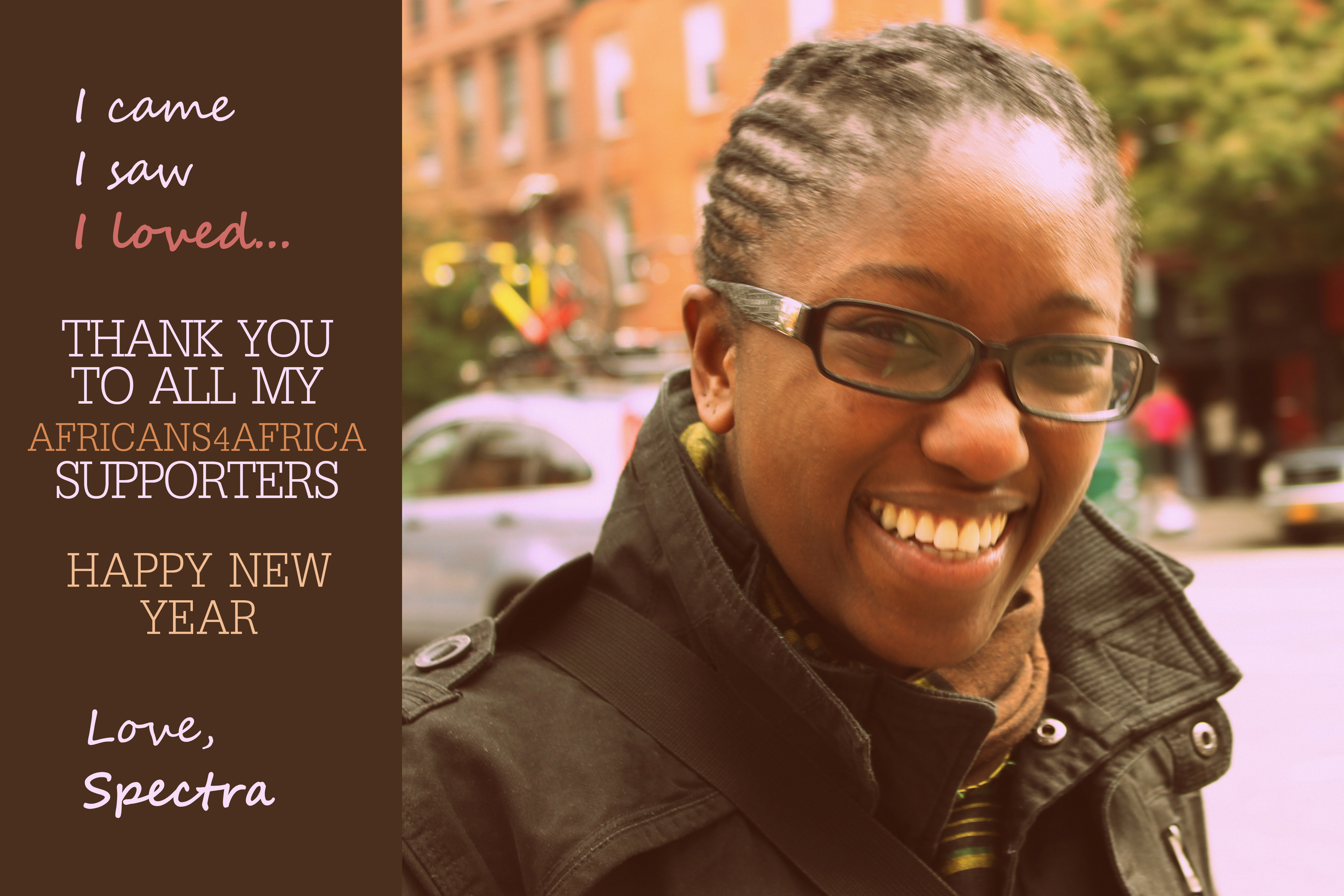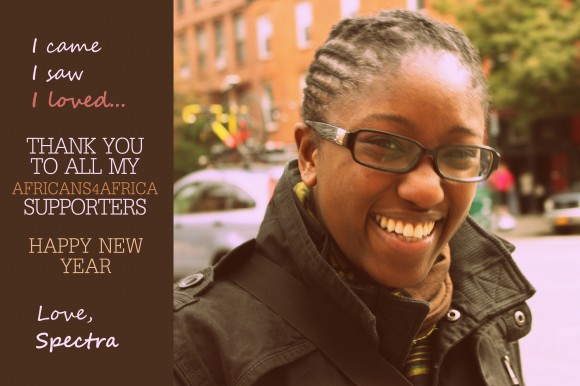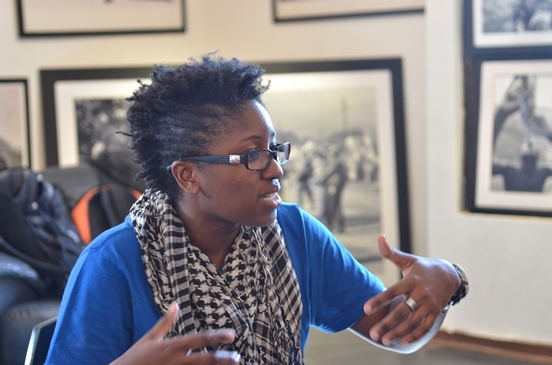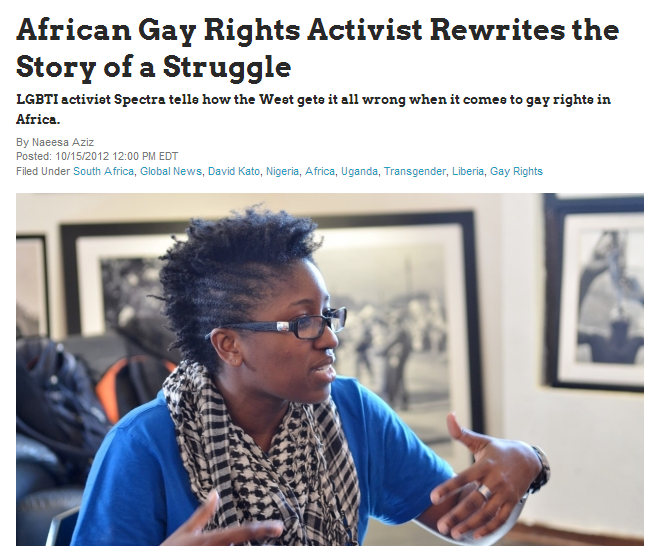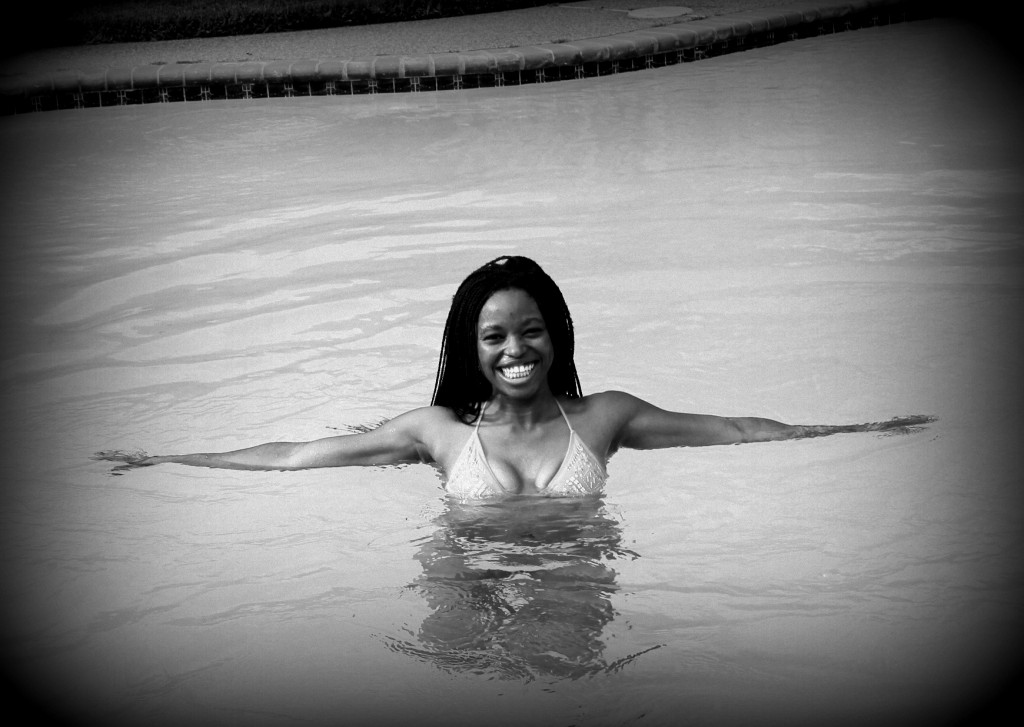A Gay Zulu Wedding and the Danger of a Single LGBT African Story
Male and Married: The Gay Zulu Wedding and the Danger of a Single LGBT African Story
In case you missed it, a few weeks ago, two gay black South African men tied the knot at their 200-guest traditional wedding in KwaDukuza, the first of its kind in the old Zulu capital.
 Love birds Tshepo Modisane and Thoba Sithole, both proudly Zulu and Tswana, have made their union a part of South Africa’s history by deciding to go public with their gay African traditional wedding ceremony, with a few twists:
Love birds Tshepo Modisane and Thoba Sithole, both proudly Zulu and Tswana, have made their union a part of South Africa’s history by deciding to go public with their gay African traditional wedding ceremony, with a few twists:
In place of the customary lobolo (bride price or dowry), via which the husband customarily offer’s the wife’s family money and/or gifts, they’ve decided to opt for gender parity and, instead,  offer gifts to each of their families in thanks for raising them. They also plan to use the hyphenated version of both their last names, Sithole-Modisane, and are planning to start a family soon using a surrogate (though this report says they’ll be adopting.)
In the video report (below), the couple shares, “It’s against this idea that being gay is unAfrican… Being gay is as African as being black. We are a part of our culture. Thoba is Zulu and I’m Tswana. We’re rooted in our culture and very excited about it.”
On paper, South Africa boasts the friendliest constitution, which protects its lesbian, gay, bisexual, transgender, and intersex (LGBTI) citizens from discrimination based on race, gender and sexual orientation. Yet, the country’s struggle to shift cultural attitudes towards acceptance for this marginalized group of people, especially in rural areas and townships, remains.
According to this Human Rights Watch report, “Black lesbians and transgender men in South African townships and rural areas face an overwhelming climate of discrimination and violence despite protections promised them in the country’s constitution.” It’s no wonder, then, that the mere optics of the “first gay traditional African wedding,” warrant its celebration as a historical milestone for gay Africans everywhere.
Denis Nzioka, founder and editor of Identity Kenya, a news organization covering sexual and gender minorities in Kenya, remarked in an interview, “The gay Zulu wedding was epic, if not pioneering. Having seen the video and photos and customs I was amazed at how the two mixed their love and celebrated it in an ‘African’ way.†And in response to what’s become a slogan amongst anti-gay African leaders, “Homophobia is unAfrican,†Nzioka insists that “the fact that two African men can fall in love and wed, despite a homophobic society that frowns on same-sex relationships counters what many Africans [have been] saying’.â€
The Danger of a Single LGBT African (Male, Middle-Class, and Marriage-Focused) Story
 Chimamanda Adichie, a celebrated Nigerian writer said in her famous TEDTalk, “The single story creates stereotypes, and the problem with stereotypes, is not that they are untrue, but that they are incomplete.â€
Chimamanda Adichie, a celebrated Nigerian writer said in her famous TEDTalk, “The single story creates stereotypes, and the problem with stereotypes, is not that they are untrue, but that they are incomplete.â€
Hence, as the media continues to hail this single occurrence as a milestone, it becomes critical that supporters of the LGBTI African movement for equality consider this single narrative exists within the context of many others.
For instance, the video report states that the two gay black men are based in the metropolitan city of Johannesburg and are working professionals in the fields of financial services and IT. That’s not to imply they’ve been in any way exempt from experiencing the debilitating impact of societal discrimination–far from it; the effects of homophobia (compounded with racism, as the couple is black) on the livelihood of people presumed to be LGBTI can result in workplace discrimination, prejudice in health care, not to mention depression, anxiety, even suicide.
Still, there’s a huge difference between the experience of being a “regular looking” cisgender male employee, at a “Big Four†financial consulting firm, in a  fairly liberal city that boasts the largest gay pride in the country, versus the harsh reality of a trying to make ends meet in a poor township, while also fearing rape for being a lesbian, or murder for being an effeminate gay man.
In a piece written for a South African LGBT publication last year, the author shared comments from a young, black, gay-identified male, who disagreed with South Africa’s reputation as a progressive state (emphasis in bold added by me):
“When you have money, it’s quite easy to set yourself free from discrimination and danger,†Junior says. “Many of the white gay and lesbian people here can afford to reside in a safe and progressive area, but the majority of us live in townships. In openly embracing your sexuality there, you run the risk of getting abused, raped or murdered.â€Â Junior’s statement emphasizes that gay and lesbian equality in South Africa is strongly mediated by race and class, and that sexual freedom is often available to those who have the racial and literal capital to afford them.
In light of the struggles of LGBTI Africans, the desire to celebrate any kind of progress – especially when it comes in the form of a gleeful Zulu wedding – is understandable; the vibrant ceremony presented a sharp contrast to the media’s grim and, at times, gruesome depiction of violent homophobia on the African continent. However, it is dangerous to assign wide-sweeping gains to all LGBTI Africans based on the perceived victory of a few.Â
What of gay Africans who view marriage as the least of their problems – young people, for instance, who have been disowned by their families and, above all, seek a stable alternative to homelessness? What about transgender women who experience rejection (and violence) from both gay and straight communities alike? And lesbians–forced to live in fear of so-called “corrective rape”–will marriage mean social acceptance for them, too?
If we’ve learned anything from criticism of the same sex marriage equality movement in the U.S., it’s that too much emphasis on marriage as a pathway to acceptance could only end up benefiting a small segment of the LGBTI community (e.g. gay men, or members of the middle class–while the groups most at-risk e.g. women, youth, transgender people, etc.–are likely to go unheard, and even unfunded.
A Nigerian lesbian activist (who prefers to remain anonymous) remarked on the unwillingness of many global human rights funders to support ‘less popular’ LGBTI programs:
“If you’re not doing HIV/AIDS work, forget it. Funders are mainly interested in gay men because of that. With women, we are not seen as much as being affected by these issues. And there is no research on Nigerian gay women to suggest otherwise, so we are at a disadvantage. Our organization provides a safe haven for lesbians and bisexual women to be out, be themselves, meet other women. We organize social events, movie nights, you name it. I know it is saving lives. But the funders don’t seem to feel that way because we are not in the news.”
Nigeria’s recent move to further criminalize homosexuality has no doubt sent even more LGBTI Nigerians back into the closest, making the need for safe social spaces even more critical. In this country, a publicly staged wedding is punishable by imprisonment for up to 14 years, and in the north, death. Hence, before the media declares the gay Zulu wedding as progress for the LGBTI African movement, it must ask itself, “What does progress for LGBTI people in other African countries (or even different groups of Africans within South Africa) look like?”
LGBTI African Activists Propose a Multi-Country, Multi-Issue Approach to Advocacy
Florence Xhaxas, founder and director of the gender justice organization, Young Feminist Movement, Namibia, warns against zero-ing in on the struggles – and progress – of a single African country at the expense of others:
“As much as I feel [the wedding video] is great for South Africans, the feeling isn’t shared by all LGBT people across the continent. The truth is that [South Africans] have mastered the art of amplifying their voices and documenting cases.”
To Xhaxas’ point, while stories from South Africa and Uganda continue to shape western media’s narrative about the LGBTI African movement, other countries experiencing their own share of hardships and progress go unnoticed. For instance, the murder of Ugandan LGBT rights activist David Kato sparked global outrage while the brutal torture and slaying of a gay Tanzanian community organizer, Maurice Mjomba barely received attention. Similarly, while South African women are perpetually victimized via “corrective rape” coverage, uprisings by lesbians in other countries, such as Namibia, and Malawi, aren’t likely to make headlines.
Says Xhaxas, “How can we improve documentation [in other countries]? How can we make sure that media hype is created for all the struggles we go through? And hold other states in the lime light of the global community’s responsibility to protect all citizens?”
To be sure, the cultural significance of the gay Zulu wedding video — the power of media, itself–cannot be ignored; LGBTI Africans all over the world were able to see their relationships affirmed in the media – a rarity. Denis Nzioka puts it best when he says, “Greater positive media portrayal of LGBT Africans has been proven to change people’s perception. As one of my close friend lesbian friend once quipped ‘Kenya’s often mild acceptance of homosexuality can be attributed, in some small way, to two persons – Will & Grace.’”
Given the impact a single video has had on recent conversations about homosexuality in Africa, among Africans at that, it goes without saying that proponents of LGBTI equality on the African continent, should more intentionally support LGBTI African media advocacy organizations and initiatives – the writers, journalists, digital media producers, and artists that risk backlash for daring to critique the world as it is, while imagining and inspiring the future as it could be.
Jabu Pereira, founder and executive of director of Iranti, a media advocacy organization based in South Africa emphasizes the importance (and threat) of LGBTI Africans using media to influence change:
“We must end the ongoing ignorance of states who continue to encourage systemic violence, we simply can’t afford this. We must not stop documenting the human rights violations we experience as LGBTI persons in Africa.. even when we are threatened…”
The media frenzy around this milestone should in no way serve as a distraction from supporting less visible, less “newsworthy” forms of activism. It should, in fact, galvanize allies to support more LGBT African organizations across the continent – not just South Africa or Uganda – that work on behalf of constituencies who fight for the most at-risk of their communities, and whose victories and milestones comprise the mundane of daily survival.
 Watch the Video Below:


 Since her breakout two years ago, Shishani has released indie tracks such as
Since her breakout two years ago, Shishani has released indie tracks such as 